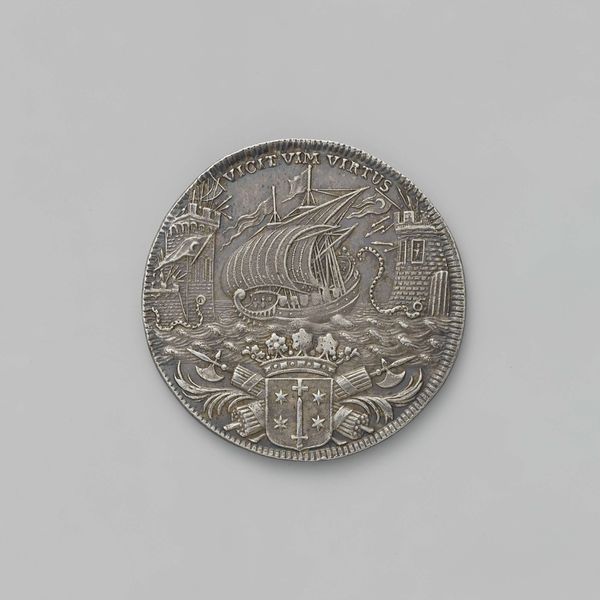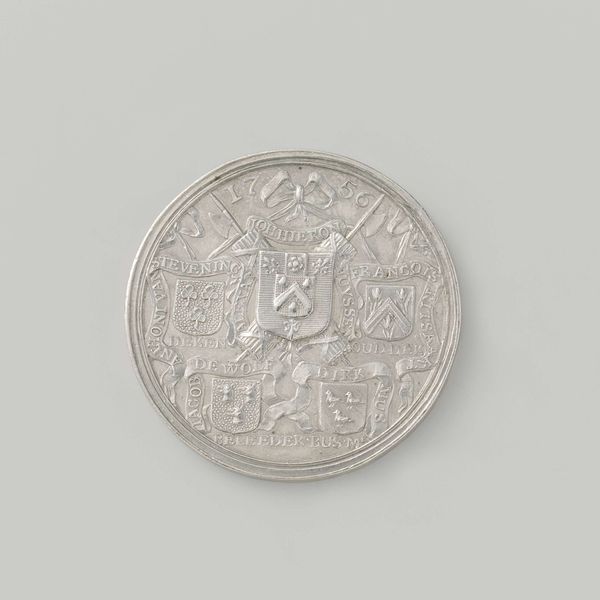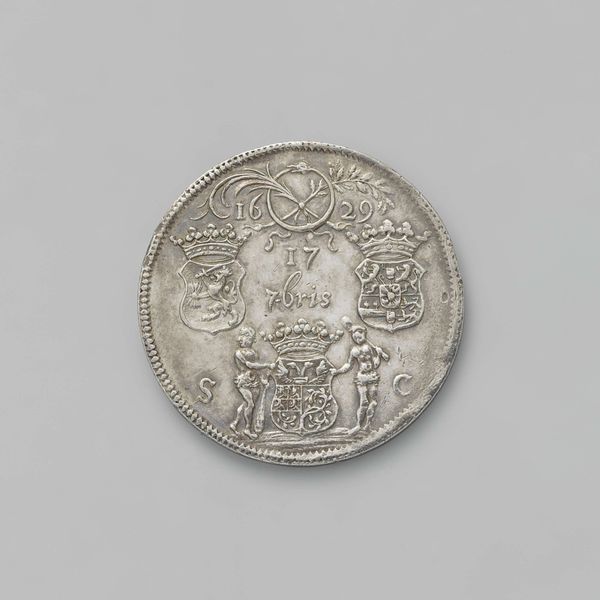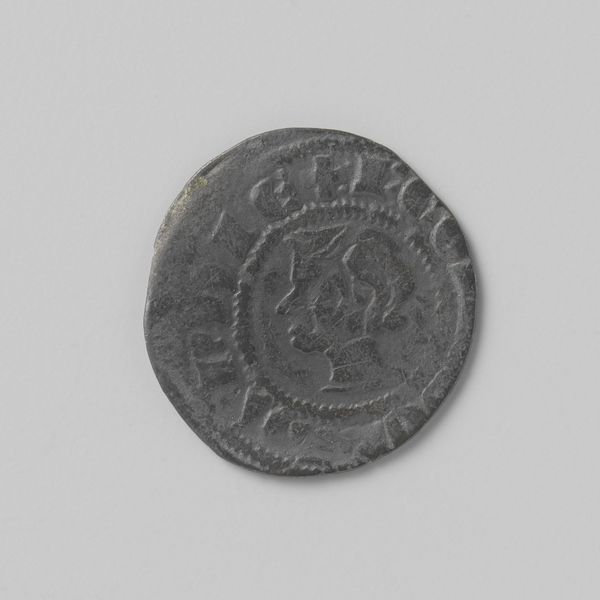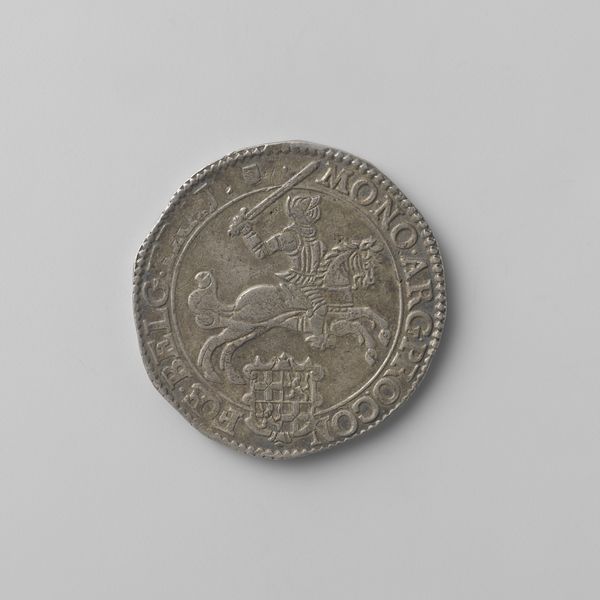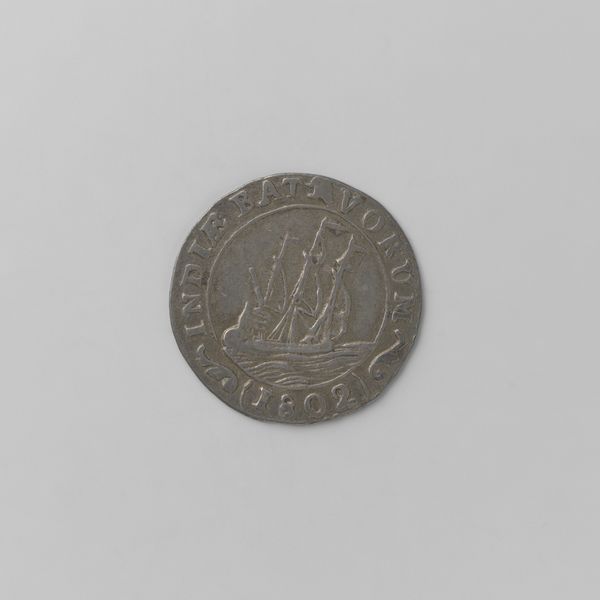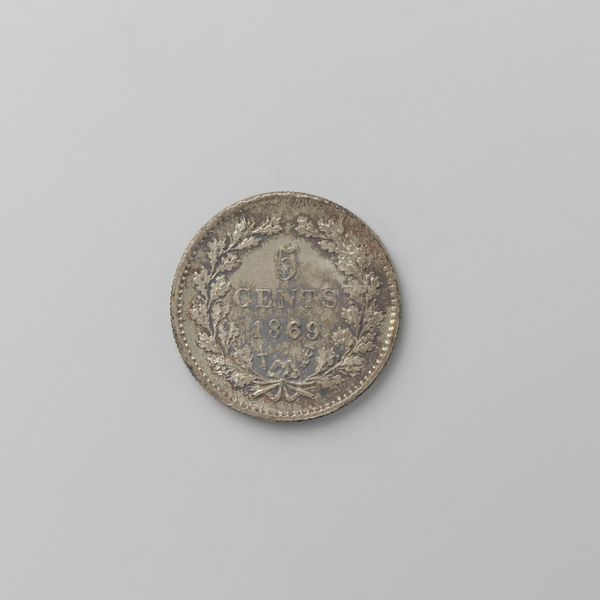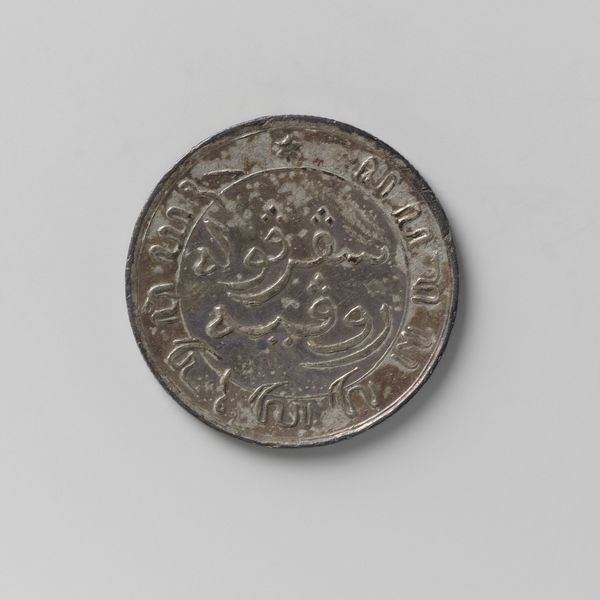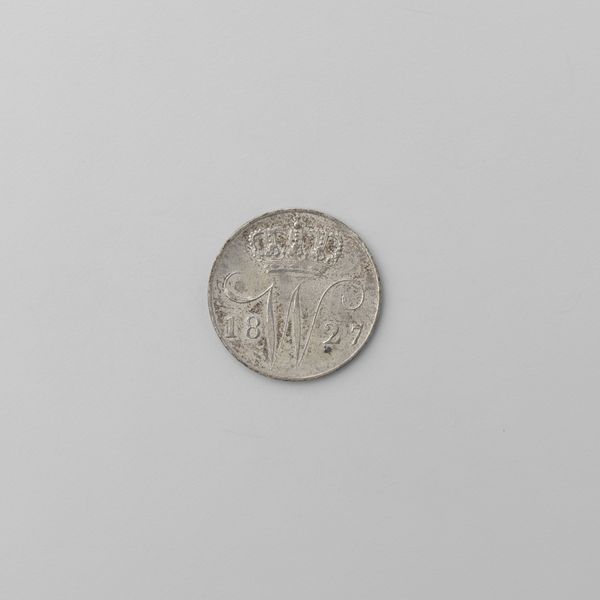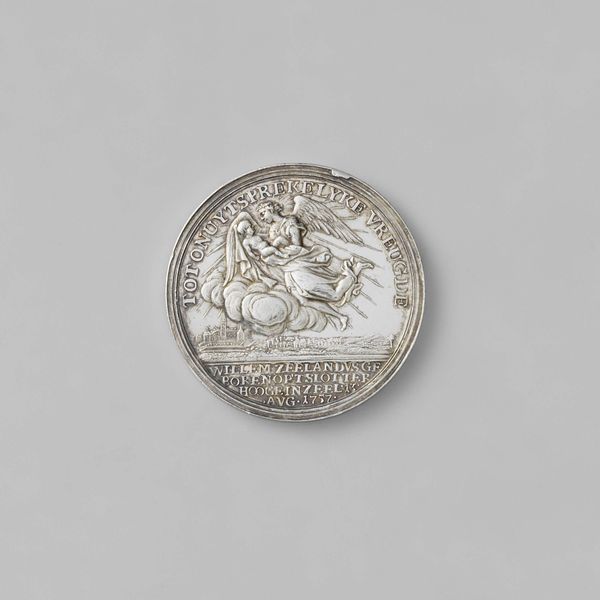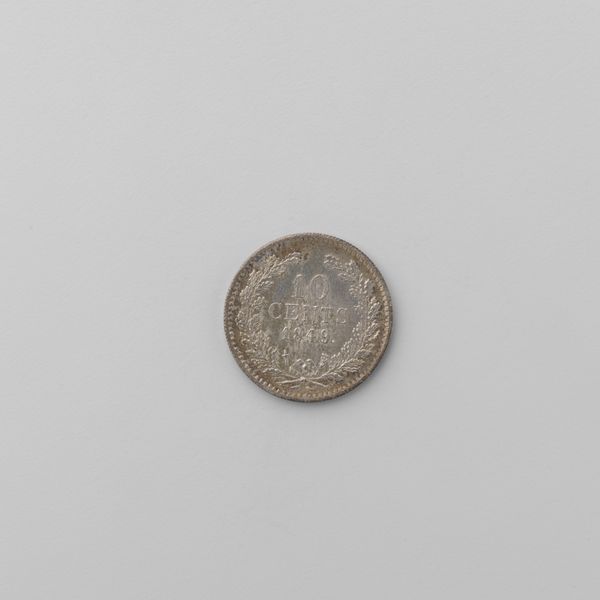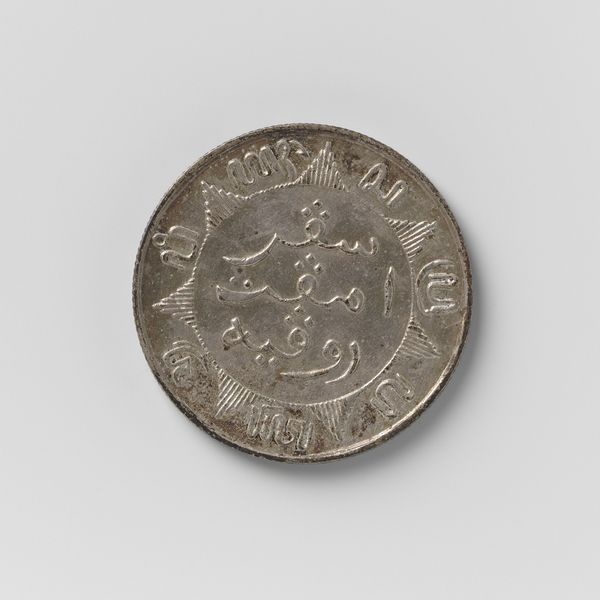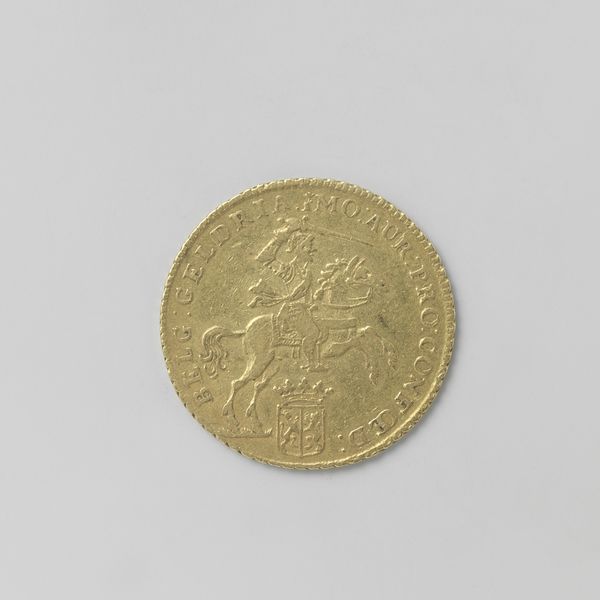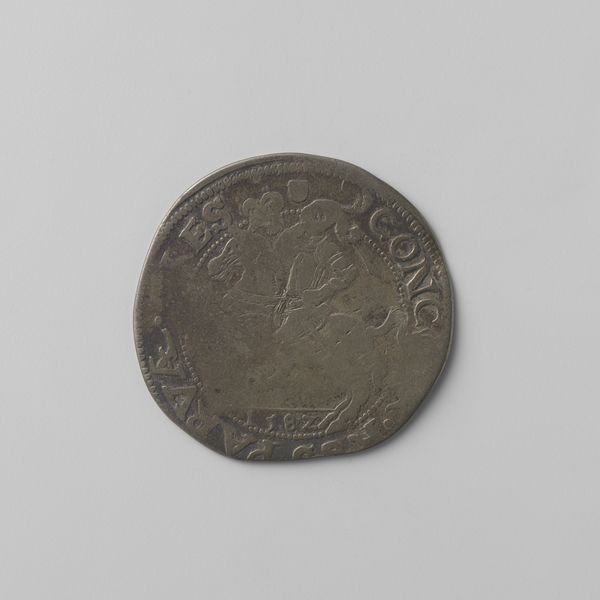
silver, metal, relief, engraving
#
portrait
#
medal
#
silver
#
baroque
#
dutch-golden-age
#
metal
#
relief
#
embossed
#
engraving
Dimensions: diameter 4.2 cm, thickness 0.2 cm, weight 19.16 gr
Copyright: Rijks Museum: Open Domain
Editor: This is the "Family Medal" made in 1674, a Dutch Baroque piece. It’s silver, featuring some lovely relief and engraving. The first thing that struck me was its ornate and personal feeling; it looks like a celebration. What's your take on this piece? Curator: This medal is brimming with symbolic significance. Notice the clasped hands beneath the divine name – that represents unity, commitment, specifically marriage. Then observe the two family crests; what stories do they whisper about lineage and alliance? Editor: Oh yes, the crests! The one on the left shows some severed heads and crosses, and the other has a lion. What did those symbols mean back then? Curator: In the 17th century, crests were declarations. The heads and crosses, the lion: they signify status, perhaps past battles, lands held. These emblems were readily "readable" by their intended audience. Have you considered what this act of commemoration says about this period? Editor: It feels very celebratory, making the private, very public. What about the surrounding decorations - roses and baroque elements, are these connected with the coat of arms? Curator: Exactly! The intertwining roses suggest familial love and continuation. While, yes, the overall baroque exuberance further amplifies the families prominence, success and prosperity. These emblems solidify the legacies they want to leave behind. What feeling do you think people at the time may have gotten? Editor: The piece does have a proud feeling, very specific. These emblems tell of values of social status, ancestry, continuation, but the imagery communicates on a more universal level as well, family pride. Thanks for the added layers. Curator: It is a pleasure! Understanding symbols is the most universal language there is; they link us through the ages to common emotional and cultural roots.
